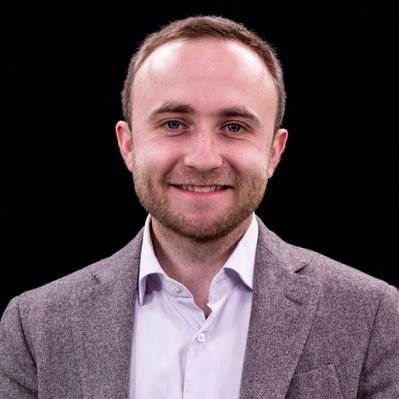The pursuit of Christian unity has been a central mission of the Church, since the Second Vatican Council. Now, in the Jubilee Year of Hope, this mission takes centre stage in Rome.
Leading these efforts is the Dicastery for Promoting Christian Unity, under the guidance of Cardinal Kurt Koch, Prefect of the Dicastery for Promoting Christian Unity.
“The foundation of all ecumenical engagement is the priestly prayer of Jesus in the 17th chapter of the Gospel of John. It is very interesting that Jesus did not command unity among His disciples but rather prayed for it. And if Jesus prayed for unity, we cannot do anything better than to pray,” emphasizes Cardinal Koch.
The Week of Prayer and the Jubilee Year of Hope
Each year, from January 18th to 25th, Christians worldwide observe the Week of Prayer for Christian Unity, culminating on the Feast of the Conversion of St. Paul.
This year this observance holds special significance as the leaders from various Christian traditions will gather in Rome during the Jubilee Year of Hope, marking a renewed commitment to ecumenism.
Fr. Hyacinthe Destivelle, O.P., Director of the Institute for Ecumenical Studies at the Angelicum University, notes, "This year, the Jubilee proclaimed and decided by Pope Francis will also have a particularly ecumenical dimension as we will celebrate the anniversary of the Council of Nicaea. This Council was not only the first ecumenical council that brought together all the bishops but also perhaps the most important one, as it laid the foundation of our faith in Christ."
Highlighting this anniversary, Pope Francis plans a pilgrimage to the ancient city of Nicaea, accompanied by Ecumenical Patriarch Bartholomew, to reaffirm the Nicene Creed alongside other Christian leaders—an unprecedented act of unity.
Challenges to Unity
But unity comes with challenges. Misconceptions, like the practice of indulgences, can create obstacles.
“The topic of indulgences is highly controversial,” Fr. Destivelle highlights. “We must distinguish between the historical aspect and the spiritual one. Historically, there have been abuses.”
Father also recalls, “Through the practice of indulgences, we express this dual belief in mercy and healing. And on this foundation, I believe all Christians can find common ground, even though the topic of indulgences itself is somewhat controversial."
Dialogue with the Coptic Orthodox Church has faced recent strains, notably over the "Fiducia Supplicans" document that opened the door to spontaneous blessings of couples in irregular situations and same-sex couples.
Fr. Destivelle plays a key role in rebuilding these relations, fostering understanding and collaboration. Efforts include theological dialogues, exchange visits, and the annual Day of Friendship between the Catholic and Coptic Churches. He explains:
“After the publication, there were three important steps: The first was that in January 2024, the Dicastery for the Doctrine of the Faith provided clarifications for the Eastern Orthodox members of the Commission. Then, Cardinal Koch, the Prefect of the Dicastery for Promoting Christian Unity, sent a letter to Pope Tawadros, the Patriarch of the Coptic Church. Finally, Cardinal Fernández, who promulgated the letter Fiducia Supplicans, personally traveled to meet Pope Tawadros in Cairo last year. I believe all these steps were well-received and helped clarify that the Catholic doctrine on marriage has not changed at all.”
Honoring the “Ecumenism of Blood”
The Jubilee Year also focuses on the 'Ecumenism of Blood,' honoring modern-day martyrs who died for their faith. Pope Francis has emphasized that their sacrifice unites Christians beyond doctrine. Cardinal Koch adds:
“In ecumenical engagement, we seek unity. However, this does not mean unionism; rather, it means respecting and acknowledging the different diversities in other churches—especially when these differences are not divisive but reconciled. Recognizing and reconciling these differences is a very important challenge that must be addressed.”
A Shared Journey Toward Unity
Throughout the year, Rome will host ecumenical events, symbolizing a shared journey toward unity. A major international conference, hosted by the World Council of Churches, will focus on the legacy of the Nicene Creed and future ecumenical dialogue.
Pope Francis reminds us, "Ecumenism is not optional." His call to walk together in faith reflects the heart of this mission. He reminds us that 'the journey of synodality... is and must be ecumenical,' underscoring the importance of walking together in faith."
This Jubilee Year offers a rare alignment—in 2025, Easter will be celebrated on the same day by all Christian denominations: April 20th.
Adapted by Jacob Stein
SIGN UP FOR OUR NEWSLETTER HERE

Alexey Gotovskiy serves as a journalist, producer, and manager at the EWTN Vatican Bureau. Born in the former Soviet Union, he holds a graduate degree in Church Communications from the Pontifical University of the Holy Cross and has produced over 200 episodes of EWTN "Vaticano," covering the life of the Universal Church.








